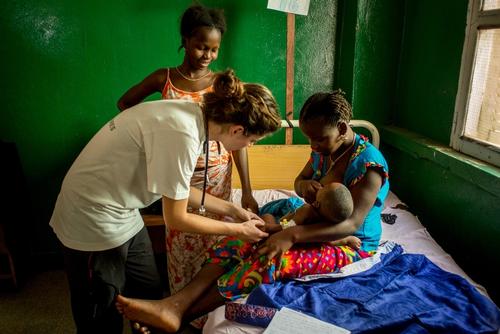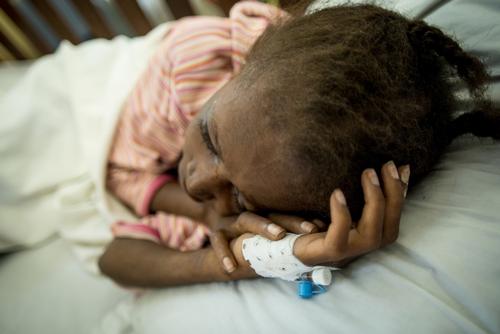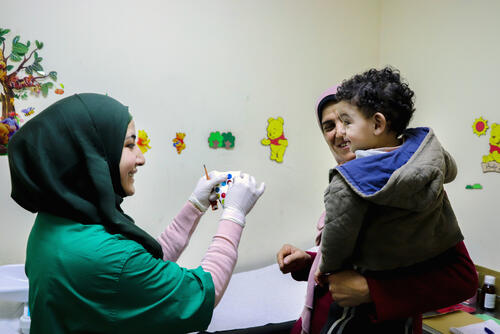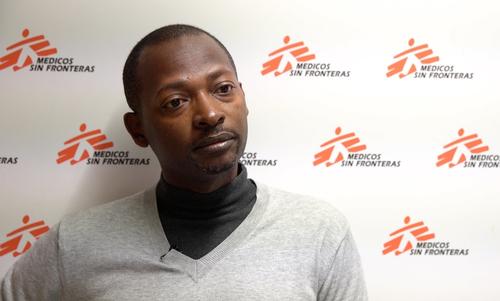Interview with Daniel Martínez, MSF’s specialist in paediatrics in Barcelona and one of the organisers of the first MSF Paediatric Days being held on 23-24 September in Stockholm, in collaboration with the Karolinska Institute University Hospital.
Why is MSF organising the Paediatric Days?
MSF assists the most vulnerable in contexts of war, violence, epidemics and neglected diseases, natural disasters and exclusion from healthcare, and children in these contexts are always among the most vulnerable population. So inadvertently, and without being a paediatric organisation, between 50 and 60 per cent of all the people we look after are under five years old. If we take a more generally accepted definition of paediatric care – for children up to 18 years old – then we estimate that two-thirds of our patients are in this age group
We have therefore accumulated extensive experience in paediatric care in humanitarian contexts and with limited resources, and we believe that there is a need for a specific international forum where these experiences can be shared with other groups and institutions. No such forum currently exists. There are global forums on general paediatrics but our access to them is also limited by their cost.
What is the purpose of these Paediatric Days?
The need for an international forum that is dedicated to disseminating and promoting research and science relating to paediatrics in humanitarian contexts, in emergency care or with limited resources is evident in the development of technologies or new drugs, because they are not meeting our needs. For example, technologies have not been developed to enable a relatively basic intensive care unit to be set up; instead, you can only buy the already existing equipment, which is very expensive. This makes it impossible to set up quality paediatric hospitals in contexts with limited resources.
We want to create an international forum on paediatrics in humanitarian contexts. It is not just a simple scientific congress; we hope that useful recommendations will come out of it that can be applied in contexts where we and other organisations work, and that other groups and institutions will be able to see the areas in which research and development are lacking.
What are the main issues to be discussed?
We have defined four themes, two on neonatology and two on paediatrics. Regarding neonatology, we are going to look at one of the main causes of neonatal mortality – neonatal infections – and we are also going to have a session on premature babies. Regarding paediatrics, we will discuss how to handle children suffering from shock in areas with limited resources, a topic around which there is a great deal of technical controversy, and also how to treat sickle-cell anaemia, the most common haematological disease in Africa.
We believe that sickle-cell anaemia has been a neglected disease for decades. It is a life-threatening, chronic disease, but if detected and treated early, the patient can lead a life with fewer complications and a longer life expectancy. Today, 90 per cent of the people with sickle-cell anaemia in Europe reach adulthood, whereas in countries with few resources 90 per cent of them die before they are five years old. Three-quarters of all cases worldwide occur in just three countries: India, Nigeria and the Democratic Republic of Congo.
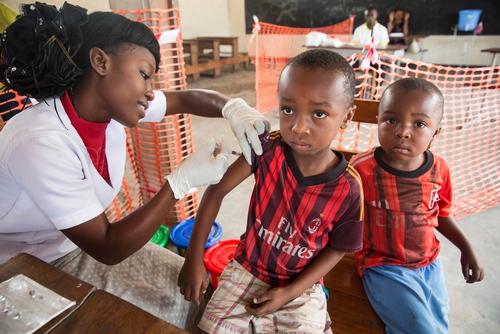
What is the controversy surrounding how to handle children suffering from shock?
Shock is when a person experiences a sudden drop in their vital functions and has a very high risk of death. This can be due to many causes: lack of blood, severe infection, heart failure, etc. In this area, we have seen that simply transferring medicine from rich countries to poor countries without adapting it does not always work. In fact, a recent study showed that when doing the same thing in developing countries as in rich countries, the mortality can increase.
In most of the contexts where we are working, we cannot diagnose quickly enough which kind of shock the children we assist are suffering from. This problem does not exist in the developed world, but it is vital for countries that have fewer resources. We are talking about the serious pathology that we see most often.
In Stockholm, we will bring together various experts in the field and we're going to get them to fight it out (academically) and try and get them to come to an agreement: if today we are in a context where there are no resources to have a level 1 paediatric ICU, what should we do and what shouldn't we do? The aim of the session is to end up with some clear recommendations that will help us to improve the assistance we give to these critically ill patients in areas with limited resources.
How has paediatrics evolved at MSF?
Historically, our approach has been to focus on the deadliest diseases and we have developed strategies with a more vertical vision: programmes focusing on malnutrition, malaria, HIV, tuberculosis, vaccination, etc. We are now seeing that with a more integrated vision, thinking about children more as a population group – from newborn to childhood and up to adolescence – we can work in packages. Instead of seeing a child and just vaccinating that child, we can vaccinate and also offer treatment against other diseases, including preventive treatment. MSF has been working with these packages for about 10 years now. In general, we focus on a disease, such as malaria, and from there we add on other things.
Increasingly, we are approaching our patients with a more horizontal and less vertical view: one that's based more on the person and less on the disease.



